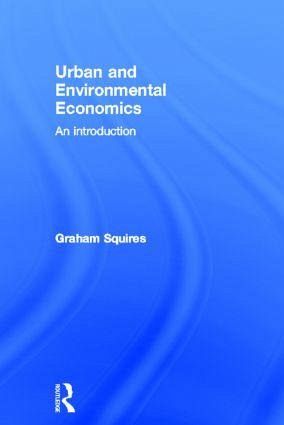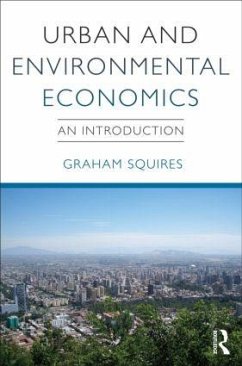
Urban and Environmental Economics
An Introduction
Versandkostenfrei!
Versandfertig in 1-2 Wochen
217,99 €
inkl. MwSt.
Weitere Ausgaben:

PAYBACK Punkte
109 °P sammeln!
The importance of the built environment to environmental protection is well established, with strict environmental regulations now a feature of the working lives of planners, contractors, building designers, and quantity surveyors alike. Those new to, or preparing to join this industry must have an understanding of how their environmental responsibilities relate to their professional responsibilities in economic terms. Designed as an introductory textbook, Urban and Environmental Economics: An Introduction provides the background information from these disciplines to understand crucial tools and economic techniques. A broad range of theories of the natural and built environments and economics are explained, helping the reader develop a real understanding of the topics that influence this subject, such as: the history of economic thought on the built environment the economics of shared space in the built environment cost-benefit analysis and discounting macro-economic tools, measures, and policy sustainable development resource valuation. Illustrated throughout, and with lists of further reading in every chapter, this book is ideal for students at all levels who need to get to grips with the economics of the environment within a built environment context. Particularly useful to those studying planning, land economy, environmental management, or housing development.
Illustrated throughout, and with lists of further reading in every chapter, this book is ideal for students at all levels who need to get to grips with the economics of the environment within a built environment context. It explains the theory needed to understand crucial tools and economic techniques such as cost-benefit analysis, discounting, resource valuation, and macro-economic tools. Particularly useful to those studying planning, land economy, environmental management, or housing development.














